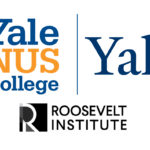
Yale News
Yale-NUS Dean of Faculty Jeannette Ickovics was recently elected as a fellow of the Academy of Behavioral Medicine Research.
The ABMR is an international network of scholars whose work deals with behavioral medicine. The forum allows top researchers to share their work with other leading scientists in the field. According to the ABMR website, fellows are chosen by a membership committee after being nominated by two current academy fellows for achieving “high levels of productivity, excellence and broad recognition for their accomplishments.” This year, eight scholars, including Ickovics, were selected to join the ABMR as academy fellows.
“As the premier honorary organization for scientists working at the interface of behaviour and medicine, I felt very humble and proud to be selected,” Ickovics wrote in an email to the News. “Many of the elected members are colleagues whose work I have admired throughout my career, and some I have had the privilege of working with collaboratively.”
As a fellow, Ickovics will participate in the ABMR’s annual meeting — a conference for fellows to share their research and learn about new innovations in behavioral medicine — as well as present her work to other academy fellows and collaborate on new developments in the field of behavioral research.
Ickovics came to Yale in 1989 as a postdoctoral scholar and has remained at Yale for her entire career, now serving as the Samuel and Liselotte Herman professor of the social and behavioral sciences at the School of Public Health and a professor of psychology in the Graduate School of Arts and Sciences. She has also held the role of founding chair of the social and behavioral sciences at the School of Public Health and currently holds a deanship at Yale-NUS.
“Yale has been an extraordinarily supportive place to foster the scientific careers of so many,” Ickovics wrote. “I have had the privilege to work with numerous brilliant colleagues, students and staff. The research infrastructure at Yale facilitates the entire process, from development of ideas and applying for grant funding through conduct of the studies and writing up/disseminating the results.”
Ickovics’ research spans a wide variety of subjects, such as maternal-child health, mental health and disease prevention. Recently, her research topics have included obesity and healthy living habits in New Haven and New Haven Public Schools, as well as risk reduction of HIV and STDs for women. Ickovics has also continued to mentor Yale postdoctoral scholars in HIV prevention research.
One of Ickovics’ greatest contributions, as pointed out by Dean of the School of Public Health Sten Vermund and associate research scientist at the School of Public Health Jessica Lewis, who was also mentored by Ickovics as a postdoc, is her founding of the Community Alliance for Research and Engagement, or CARE, with Southern Connecticut State University.
Through research and community engagement, CARE aims to improve the health of low-income communities in New Haven. According to Ickovics, she is dedicated to health equity and social justice, specifically for groups that are “often marginalized by the healthcare system and by society.”
“She was a very insightful psychologist looking at HIV prevention through a community lens,” Vermund said. “She was interested in community participatory research, and trying to get the community engaged in work. And that was, I think, ahead of its time, and it was obviously very much the right thing to do. … I think the nature of her work, having been so engaging of the community, made a big impression on the professional association that gave her the award.”
Vermund, along with Lewis and School of Medicine professor of obstetrics, gynecology and reproductive sciences Urania Magriples, emphasized Ickovics’ strong focus on community-based research. Lewis referred to Ickovics as a “pioneer” when it came to her “innovative” models of prenatal care, which optimize doctor’s visits to allow the mother as much time as possible with the doctor.
Magriples explained that when she worked with Ickovics on prenatal care research, the pair faced pushback from several obstetricians who did not want to implement the changes that Ickovics’ research supports. But Magriples said that Ickovics remained both persistent and optimistic despite the resistance.
“I don’t think Jeanette ever changed her demeanor,” Magriples said. “It’s always nice to have that person, the ultimate optimist.”
The ABMR’s 2021 meeting will take place Oct. 7-11, and Ickovics will lead a discussion there called “Aging Starts in the Womb: Next Gen Pregnancy Research” alongside University of California, Irvine, professors Sonja Entringer and Pathik Wadhwa.
Adam Levine | a.levine@yale.edu








